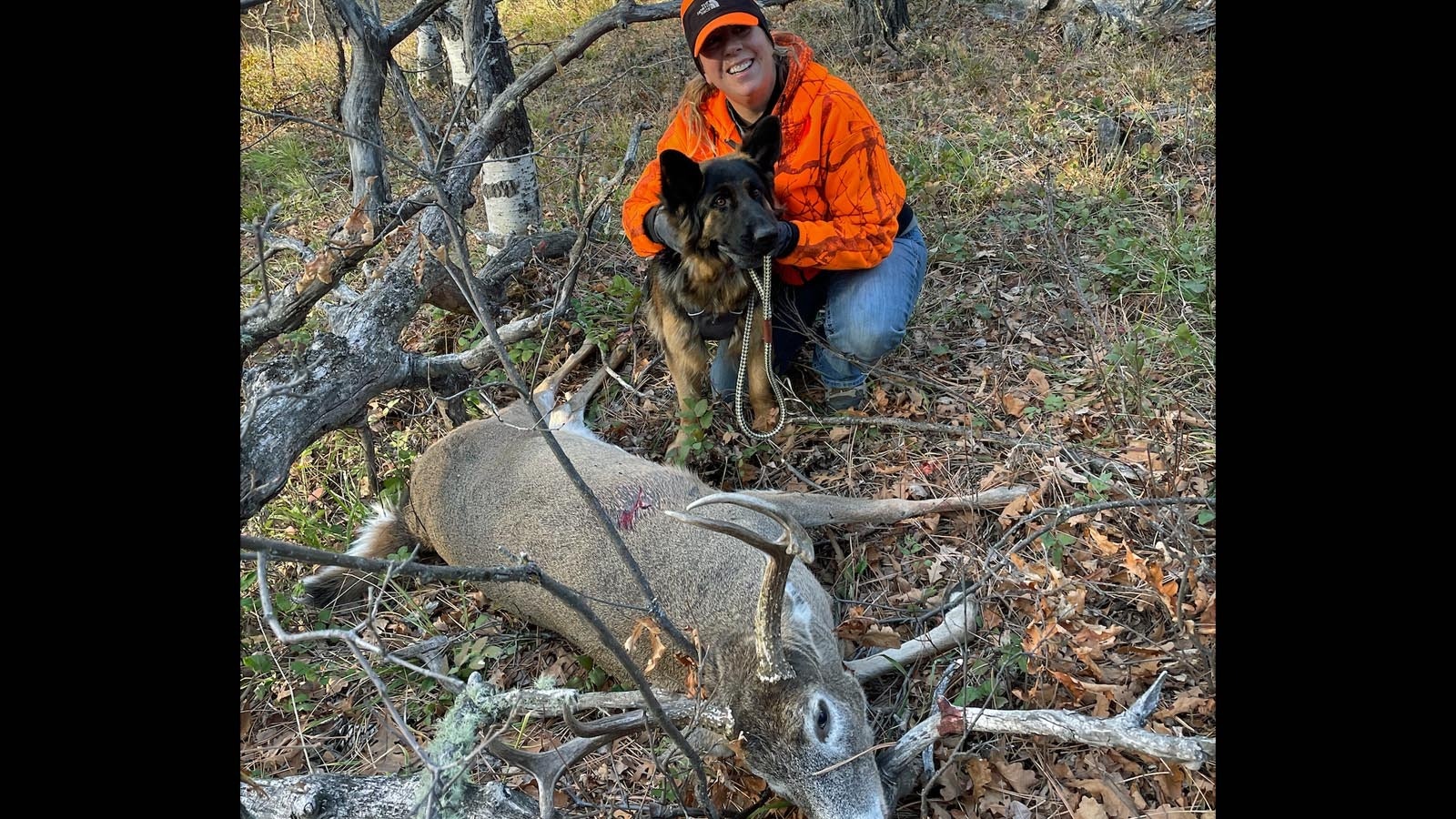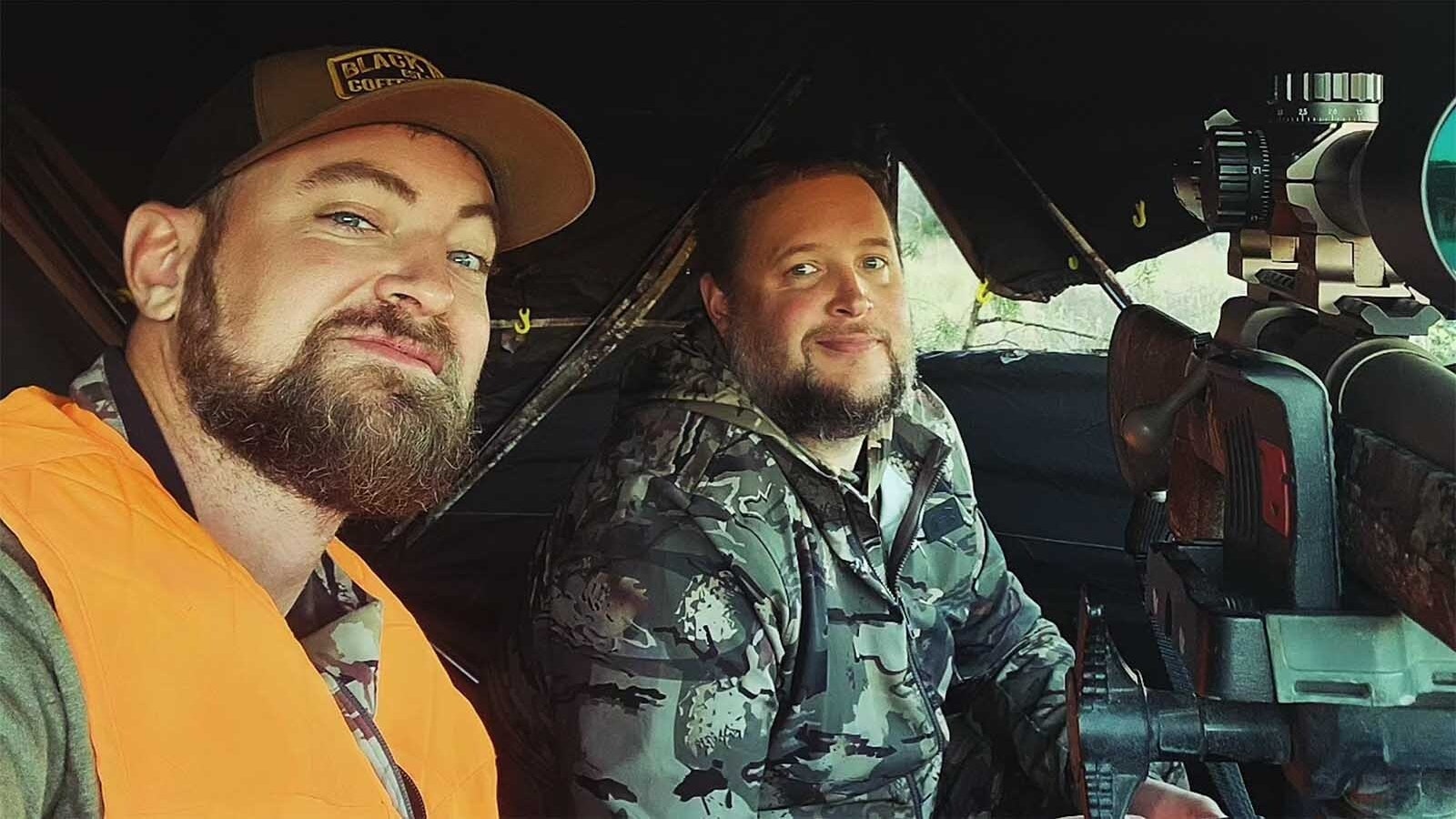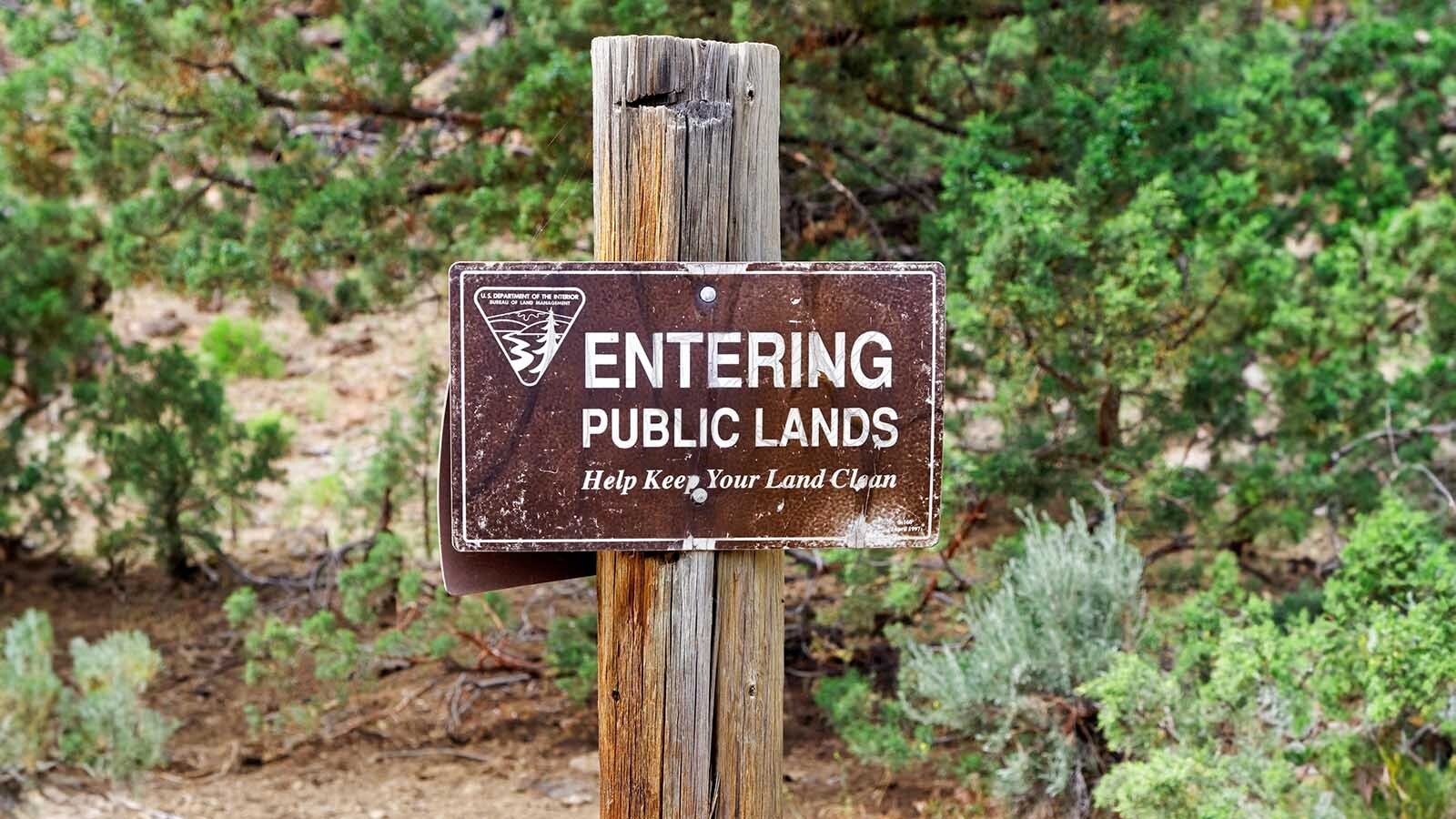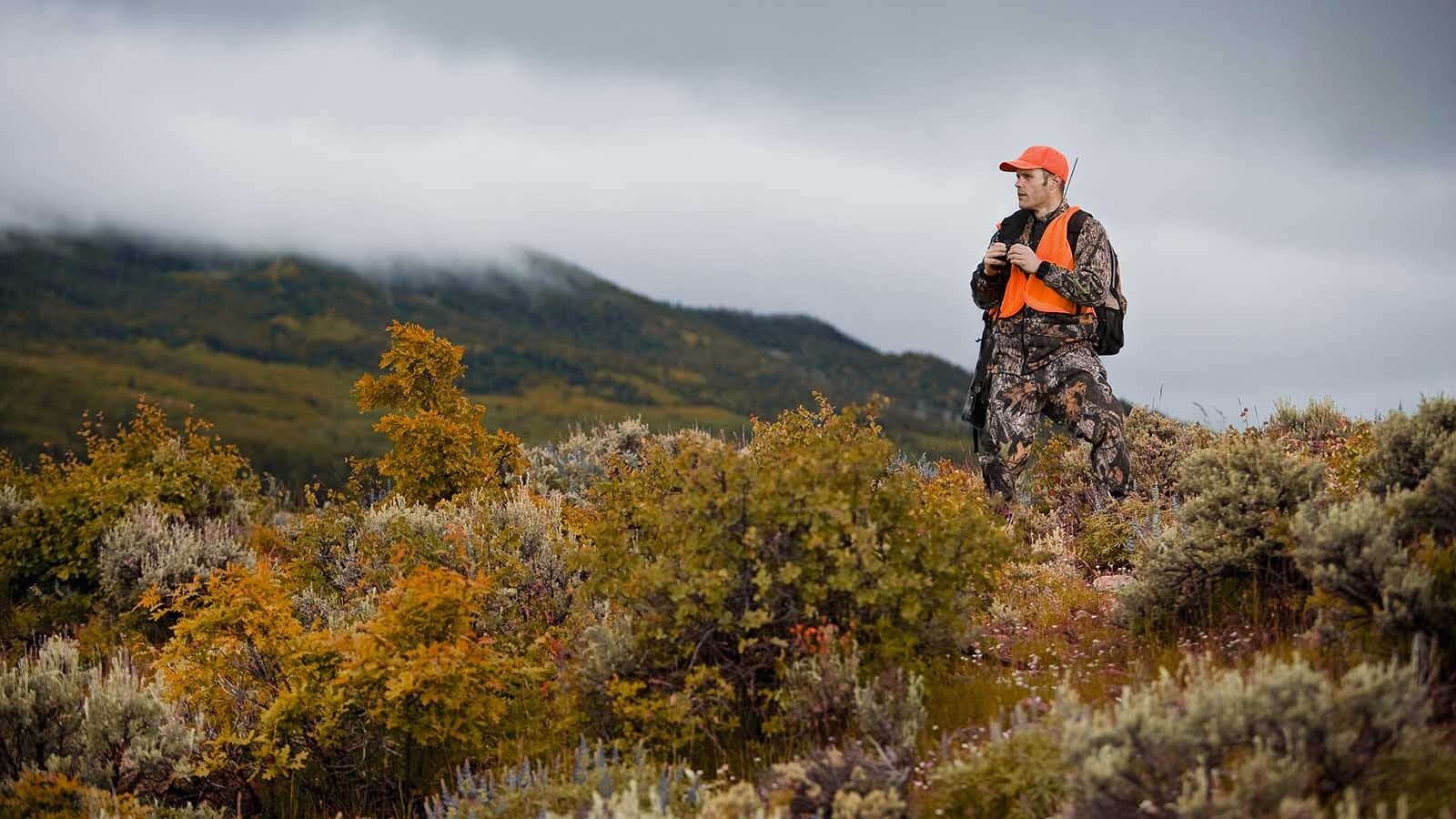Losing track of a downed big game animal is no reason to lose hope; tracking dogs like Kimber are ready and eager to help.
She’s a two-year-old German Shepherd from Pine Haven, still somewhat new to trailing missing big game kills. However, she proved herself last November, tracking down a hit and dying buck that went missing near Devils Tower.
“It was people from Pennsylvania who had permission to hunt on some private land, and they had been looking for this deer for hours before they called me,” Kimber’s handler, Jana Thompson, told Cowboy State Daily. “It was back in some thick brush. And Kimber found it in about 15 minutes.”
“A lot of people still don’t even know about the tracking dogs,” Thompson said. “The Wyoming Game and Fish Department just legalized it (using dogs to find lost big game) at the end of the season in 2019.”
A single, leashed “blood trailing dog” may be used to track a missing big game animal within 72 hours of it being shot, according to the 2022 Game and Fish big game hunting regulations.
The dog must be under the handler’s direct control and on a leash no more than 50 feet long, according to the regulations.
Thompson said she uses a 30-foot leash, and learning how to keep it from tangling in trees and brush was difficult at first.
“There are some very informative online videos about leash-handling,” she said. “It’s not something you might think of immediately, but when you get out in the field, you realize what an important skill it is to have.”
Putting A Good Nose To Good Use
Thompson said she got into game tracking mostly by chance. She was looking for a way to channel Kimber’s energy and talent.
“I was just looking for something to do with her,” Thompson said. “She’s got an excellent nose and she loves to work. I don’t hunt, but all of my family hunts. And I kept hearing people say, ‘oh, I lost that deer, and I wish there had been a way to find it.’”
Thompson found out about a nation-wide group, United Blood Trackers, and knew that was what she’d been looking for. The group currently has 16 trackers listed in Wyoming, including her.
“There were things I had to learn too, like not pushing a deer too hard too soon,” she said.
The first deer she and Kimber tried tracking for friends had been shot on public land. Looking back, they should have waited longer for the deer to die, or at least bleed out to the point of exhaustion, Thompson said.
“We came up on it, and unfortunately, it was still alive,” she said. “It jumped up and went on to private property, where we couldn’t follow.”
Training Is Important
“Any breed can do this, they just have to have good nose,” Thompson said.
“There’s one guy in Colorado – and you’re going to laugh when you hear this – but he uses a dachshund, and they track down bears.”
That impressed Thompson, so much, she’s decided to start training her own dachshund, Molly, 7, to perhaps track someday as well.
“She’s looking good,” Thompson said of Molly. “She has a different tracking style than Kimber, because her nose is already right there close to the ground.”
It’s vital to train a dog to stay on one animal’s trail, and not get distracted, Thompson said.
“They have to know to stay on track, instead of seeing another deer run by and think, ‘oh, I’m going to go after that deer,’” she said.
Thompson said a reward system has worked best for her.
“Start out with a really, really short training track,” she said. “Like, taking a piece of liver and dragging it across the ground. The dog learns to stick her nose in that, and then get a reward at the end.”
“Now, when Kimber finds a deer, we make it a huge celebration,” she said. “It’s like a big party, and she looks forward to getting that as her reward.”
Not For Profit
There are trackers in some Eastern states that “do this for a living” and charge fees for their services, Thompson said.
But so far, she and most other trackers in Wyoming and other Western states don’t charge.
“We don’t want somebody to not call us because they’re afraid of what it might cost,” she said. “We would rather have them call us than have that deer be lost.”
“We will take tips,” she added. “Gas money is always nice. And, of course, dog treats.”





